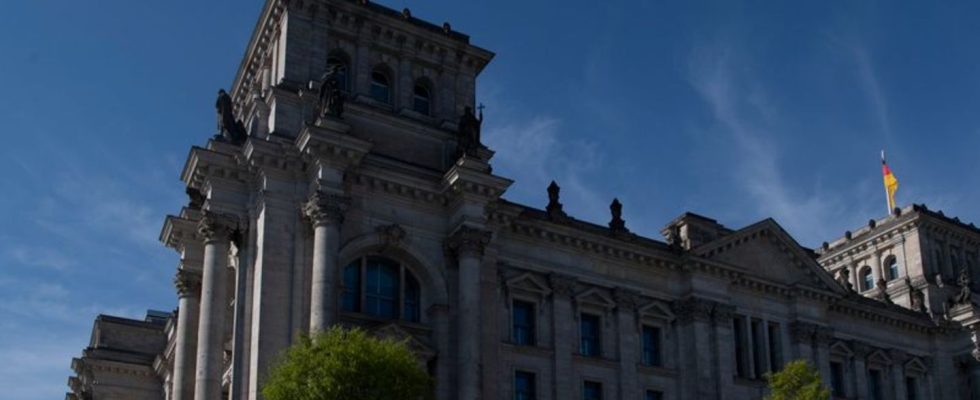Net world
Ampel wants new rules for activities on social media
The seat of the Bundestag: The Reichstag building in Berlin. photo
© Paul Zinken/dpa
Bundestag factions have unlawfully mixed election advertising and factual information on social media – according to the Federal Audit Office’s accusation. The coalition now wants to react.
The traffic light coalition wants to establish a new legal framework for the activities of the Bundestag factions on social media. The SPD, FDP and Green factions told the German Press Agency that The Federal Audit Office has called for clear legal regulations for the social media work of the parliamentary groups. “We want to create a legally secure basis for the parliamentary groups’ public relations work from the center of parliament.” There were good and constructive discussions between the responsible rapporteurs from the SPD, the Greens and the FDP, and the Union was also involved.
Patrick Schnieder, Parliamentary Managing Director of the CDU/CSU parliamentary group, said: “The traffic lights are late.” So far she has not responded to a proposal from the Union faction. “That’s why I welcome the fact that the traffic light now also sees the need for a change in the law. Based on our proposal, we are open to discussions with the traffic light in order to reach a cross-party consensus.”
Court of Auditors criticizes: federal funds used in violation of the rules
The Federal Audit Office had criticized the fact that the Bundestag factions were using federal funds “inappropriately and therefore in violation of the rules” when using social media. The current legal framework favors this. “For system-related reasons, it creates significant false incentives to promote one’s own politics, one’s own party and thus one’s re-election.” That is against the rules.
The Court of Auditors examined all of the parliamentary groups’ posts in the week before the 2021 federal election. Result: “For the most part, they did not provide information or only provided information about the activities of the parliamentary groups, or the posts contained party or election advertising and were therefore inadmissible.”
The federal government provides the parliamentary groups with cash and non-cash benefits currently amounting to 140 million euros annually from the federal budget as parliamentary group funds. Among other things, they used this to finance their public relations work, including appearances on social media. The legislature remains called upon to reform and clarify the requirements. Violations would require sanctions.
Traffic light groups want legal adjustments
According to the communication from the traffic light groups, an adjustment to the law on representatives is planned. In the future, it should be made clearer that the parliamentary groups can report comprehensively on their work in the Bundestag, convey their political positions and enter into dialogue with citizens about parliamentary-political issues. This particularly includes communication via digital media. “It is clear that parliamentary groups are not allowed to engage in party work. In the context of election campaigns, a clear demarcation from inadmissible party advertising is particularly important.”
Especially in challenging times, parliamentary groups must inform citizens transparently and comprehensively about their work, said SPD MP Johannes Fechner. “But if the public funds intended for this purpose are misused, there must be a crystal-clear legal basis for their rapid repayment. We are therefore creating clear rules for more transparency and against misuse of tax funds.”
Green MP Irene Mihalic said the limits of legitimate public relations should be clarified and a legal right to repayment should be introduced. “In the future, the President of the Bundestag should be able to demand the full return of funds used inappropriately. Violations of the rules will no longer remain without consequences. Six weeks before the federal election, public relations work will be limited to parliamentary events. Especially in the hot election campaign phase, a clear demarcation from inadmissible party advertising must be ensured.”
FDP: Need a clear legal framework
The FDP politician Stephan Thomae said that there must be a clear legal framework for modern public relations work in digital media. This must also ensure that the financial resources earmarked for this purpose are only used appropriately.
The CDU politician Schnieder said that it had been known for a long time that the legal basis for public relations work by parliamentary groups had to be brought up to date. The CDU/CSU parliamentary group submitted a specific legislative proposal to the Bundestag over a year ago. “Our proposal stipulates that parliamentary groups are allowed to carry out independent and contemporary public relations work. It should include all current and future types of media, including of course social media. At the same time, we are ensuring that parliamentary groups are not allowed to continue to use any resources for party tasks.”

